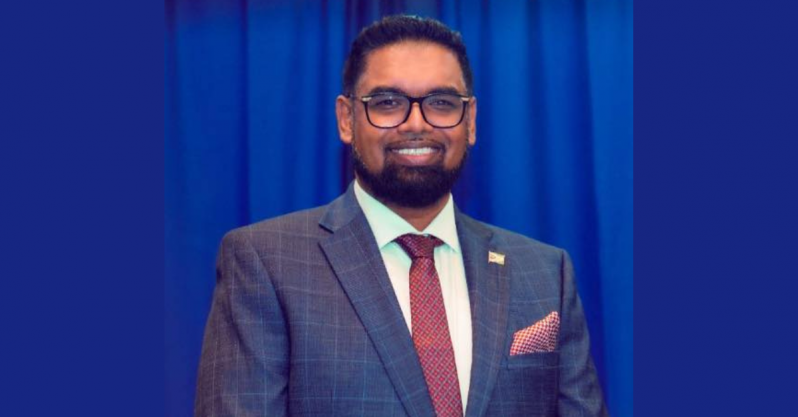–with one-off $28,000 cash grant
OLD-age pensioners will be receiving a one-off grant of $28,000 from the government, as part of a new welfare measure that will put an additional $1.8 billion into the pockets of this vulnerable group.
This was announced by President, Dr. Irfaan Ali, on Thursday, in a video message broadcast on his official Facebook page.
President Ali said that since being elected to office in 2020, his government has been placing emphasis on ensuring the lives of all Guyanese are improved, with a particular focus on the most vulnerable groups in society.
“Among these, we have focused on our senior citizens, recognising that they have served our country and the society within which they live for decades,” the President said.
He went on to say: “I am pleased, this evening, to announce the payment of an additional one-off grants of $28,000 to be paid to each and every single old-age pensioner before the end of 2022. This new announcement of this one-off grant will provide an additional $1.8 billion of disposable income to our pensioners. In addition, our seniors continue to benefit from across-the-board investments that my government is making in areas that improve the public healthcare system.”
The $28,000 grant will be the second one-off grant that pensioners will be receiving. Old-age pensioners had received a one-off grant of $25,000 in 2021; this had placed an additional $1.6 billion of disposable income in the hands of that section of the population.
The grants are among a number of measures that the government has been implementing since 2020 to improve the lives of pensioners across the country.
Prime among those measures is the increase in the old-age pension from $20,500 in 2020 to $28,000 in 2022, reflecting a 36 per cent increase which has placed a total of approximately $22 billion more in the hands of old-age pensioners, annually.
Aside from direct cash transfers, other measures that senior citizens have benefited from, since 2020, include the reintroduction of water subsidy to old-age pensioners; this has benefited over 27,000 pensioners and provided them with additional disposable income of $200 million per annum.
The government has also made it easier for pensioners to access their monthly pension through alternative payment methods such as direct bank payments, as well as direct payment to shut-in pensioners including persons living with disabilities and persons who do not have access to a post office.
“For our senior citizen, I wish to say the government will continue to honour and respect the service you’ve given to our countries over the years, as we continue to take all the steps necessary to ensure that the quality of life you enjoy continue to improve in every regard,” President Ali said.
While old-age pensioners comprise one vulnerable group that the government has placed immense focus on, persons living with a disabilities (PWD) have also seen themselves on the receiving end of government provisions.
Those persons also received a one-off $25,000 cash grant, while parents of children living with disabilities received one-off cash grants of $100,000 per child with disability.
Additionally, the government reinstated the “Because We Care” cash grant and school uniform cash grant which stand at $30,000 per child in both public and private schools.
Every household in the hinterland will receive a $25,000 one-off cash grant; fisherfolks have started receiving a one-off $150,000 grant; farmers will receive $1 billion in fertiliser support, and there were and are many other initiatives geared at addressing the rising cost of living induced by the COVID-19 pandemic and the war in Ukraine.
The International Monetary Fund (IMF) recently commended the Government of Guyana for implementing effective policies to cushion the burden of high global commodity prices.
In a report documenting the conclusions of its Article IV Consultation with local authorities, the IMF said: “Staff broadly supported the authorities’ measures to temporarily ease the burden of higher global commodity prices on the most vulnerable groups of society, given the absence of adequate safety nets.”




.jpg)









